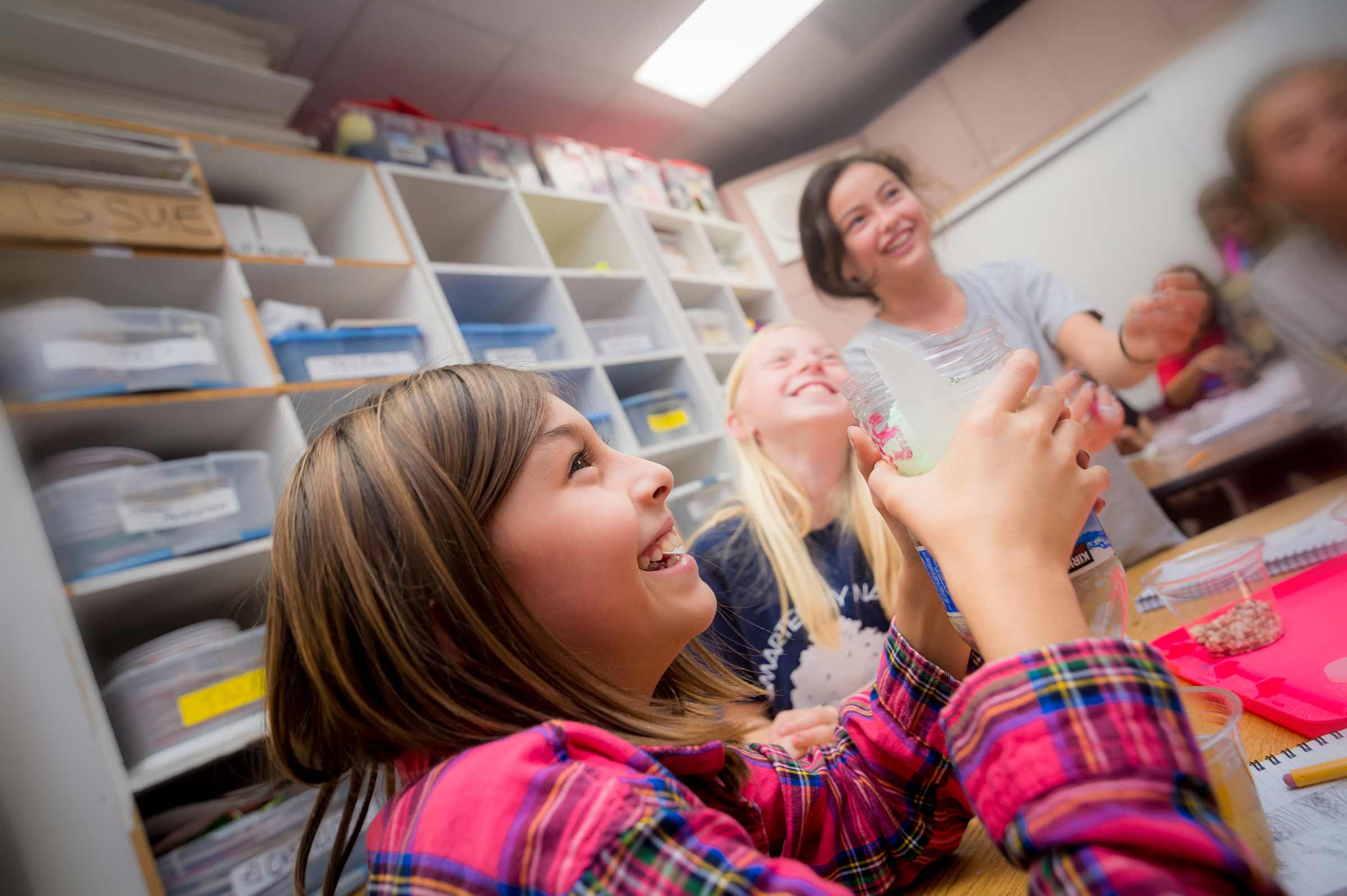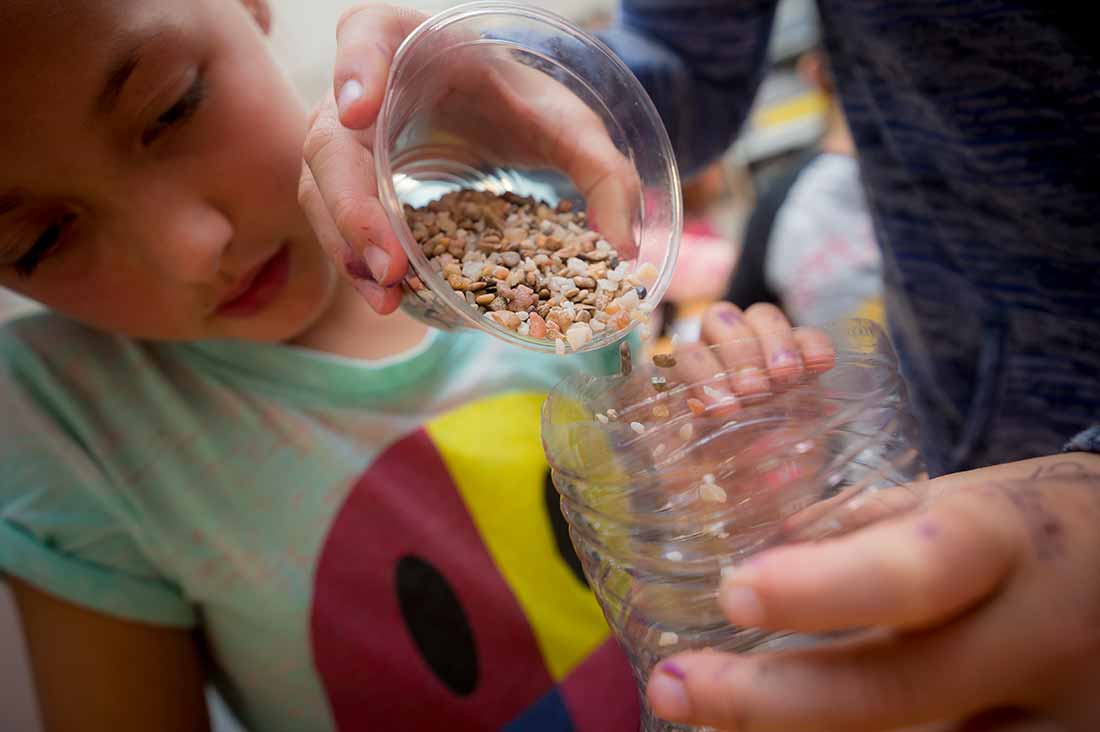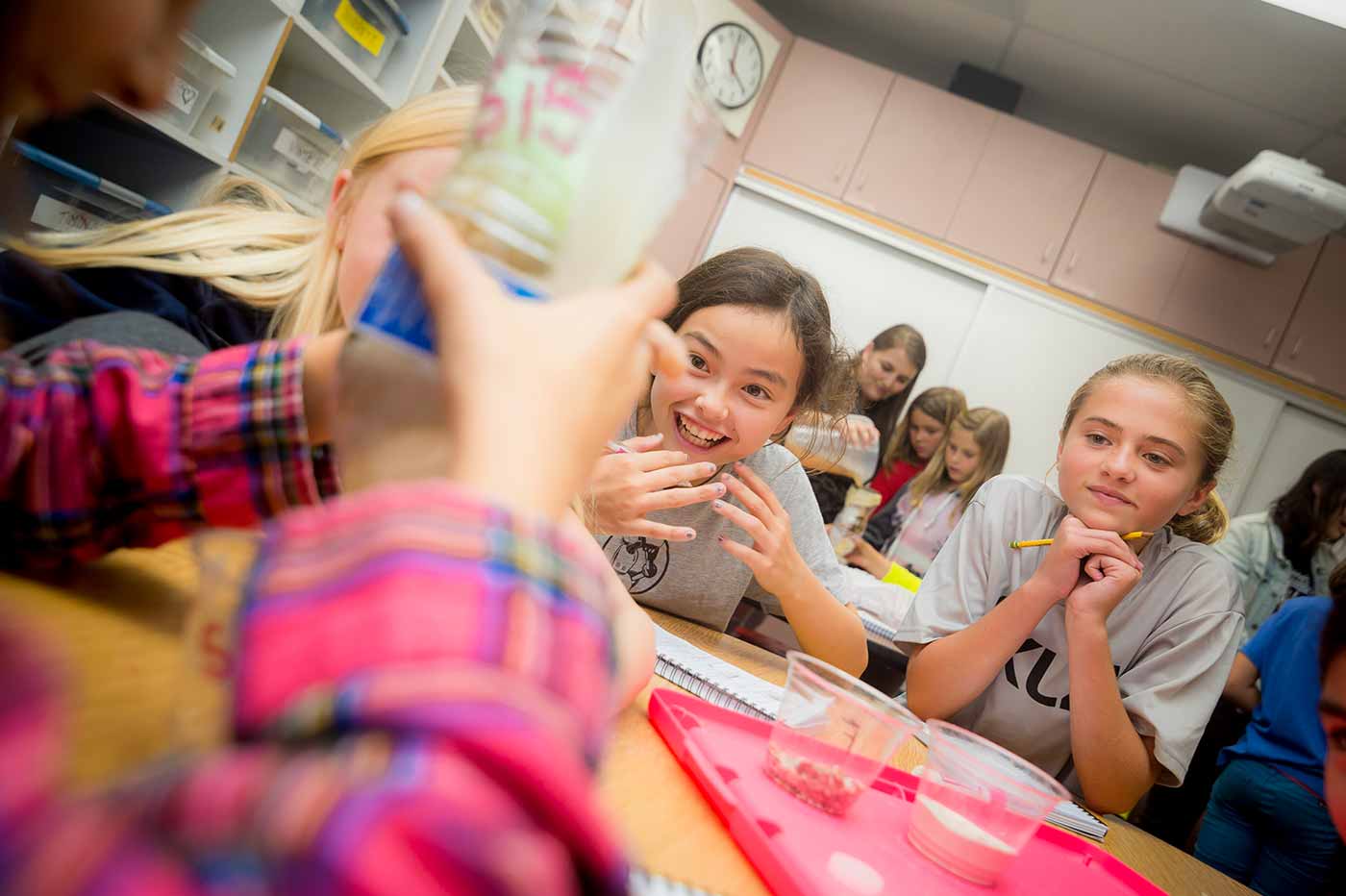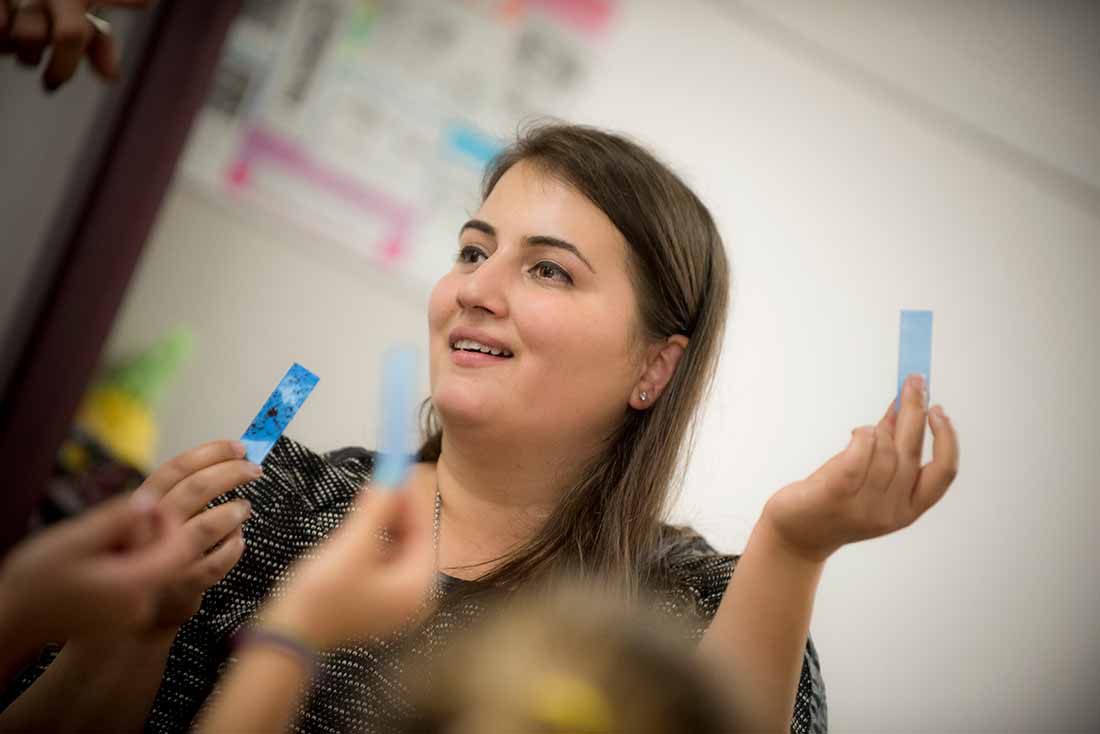UC San Diego Among Multidisciplinary Awards Providing $221M Nationally for Cutting-Edge Projects
Technology & Engineering
By:
Published Date
By:
Share This:
Outreach program aims to ignite interest in science, engineering careers among girls at four Encinitas elementary schools

Photos by Erik Jepsen/UC San Diego Publications
Outreach program aims to ignite interest in science, engineering careers among girls at four Encinitas elementary schools
How do you build the perfect water filter: with cotton balls or coffee filters? Or maybe sand? And how about decorations: feathers or duct tape? These were some of the questions groups of girls energetically debated on a recent Thursday afternoon at Paul Ecke Central Elementary School in Encinitas.
It was all part of a girls-only after school program led by undergraduate students at UC San Diego, and funded by a three-year $800,000 grant from the National Science Foundation. The project is called SISTERS—short for Sustaining Interest in Science, Technology, Engineering, and Research in Society—and it reaches more than 130 girls in 5th- and 6th grade at four Encinitas elementary schools at which anywhere from 20 to 40 percent of the students live below the poverty line.

Girls used a range of materials, including gravels and pebbles, to make water filters.
“We want this program to make a profound and lasting difference in these girls’ lives,” said Mandy Bratton, principal investigator of the SISTERS project and executive director of the Global TIES – Teams in Engineering Service program at the Jacobs School of Engineering.
“We hope the engaging curriculum and the interaction with female scientists, engineers, and undergraduates will ignite their interest in careers in science and engineering in which women continue to be underrepresented,” Bratton said.
On this particular afternoon, the girls were tasked with building a water filter to purify a concoction made of tea, cornstarch and oil. Their devices were made from empty soda bottles filled with a wide range of materials, including felt, coffee filters, wire and colorful pebbles. They were getting help from Andia Pebdani, a senior and environmental systems major, Katie Huang, a third-year computer science major, and Encinitas sixth-grade teacher Ilse Escobedo. Before they built their filters, the girls and their mentors discussed oil spills and droughts.
“Hopefully, we’ll be bringing more girls to STEM,” Huang said. As a woman in computer science, she works in a heavily male-dominated field—a fact that she’s hoping to change.
The girls worked in teams of five or six students. First, they decided on the materials to use for their filters. Then they built the devices, adding flourishes like colorful feathers and pebbles. The two UC San Diego students and Escobedo hovered around the tables and answered questions, often kneeling down to speak to the girls eye-to-eye. The girls chose names for their devices and their teams, such as the Starfloaters and Lil’ Sis.

Students wait to see if the water going through the filter will come out clean.
Finally, it was time to see how good the filters actually were. The two UC San Diego students walked around the classroom with pitchers full of the tea, cornstarch and oil concoction, slowing pouring it into the filters. Everything went quiet while the girls waited to see what would come out at the bottom end of the devices. Shouts erupted from one table: “I see it!” “Yes, it’s clean!” “Not as clean as last time.” From another: “We did it!” and “Oh my God!”
The UC San Diego students and Escobedo then examined the liquid that had been filtered and graded it from 1 to 5—one being the cleanest. They dipped oil test strips into the filtered liquid to check for residue. All of them came out clean. Cheers and sighs of relief all around.
The SISTERS program emerged from a close collaboration between Global TIES and the Encinitas Union School District. In Global TIES, interdisciplinary teams of students advised by faculty work with nonprofit organizations in San Diego and around the world. A Global TIES team advised by Jan Kleissl, an associate professor of environmental engineering, taught science and engineering lessons in the school district from 2009 to 2014. Kleissl is the co-principal investigator of SISTERS and oversees the program’s curriculum, which includes hands-on lessons about solar power, water evaporation, irrigation, energy efficiency and insulation. More importantly, though, girls learn about effort, collaboration, perseverance, and resilience. “We want the girls to learn that being a scientist or an engineer isn’t easy, but it is important and fun, and well within their reach,” Bratton said.

Andia Pebdani, a senior and environmental systems major, was one of the UC San Diego students working with the girls.
The Encinitas Union School District expects the program to be transformational for students, said Nancy Dianna Jones, the district’s administrator of support services.
“We want them to have knowledge of the scientific method and the ability to put it into practice,” Jones said. “We want them to bring the skills they have learned back to the classroom so that they can apply them.”
“We want them to be confident problem solvers who know how to work with others. We want them to love science,” she added. “We want them to have a desire to make a difference in their community and in the world.”
If that Thursday afternoon water filter exercise was any indication, the girls in the program are getting the message. “If you are a scientist, you can change the world,” said Michelle Francisco, 10, who wants to be a veterinarian when she grows up.
“Before I did the program, I didn’t like science so much,” said Megan Pusl, 10. “Now I like it a lot. It’s made science fun.” One of the program’s sessions, which focused on programming, got her motivated to become a coder, she said.
The program fills a need by providing hands-on science in elementary school, said Leighangela Brady, assistant superintendent of instruction for Encinitas Union. “We see it as an extension of the learning experience.”
Parents picking up the girls at the end of the day praised the program. “She talks about the projects at home,” said Ann Cerny, a middle school history teacher and UC San Diego alumna. After one of the sessions, her daughter, Serena, taught everyone in the family how to spell their names in binary.
Share This:
Keep up with all the latest from UC San Diego. Subscribe to the newsletter today.